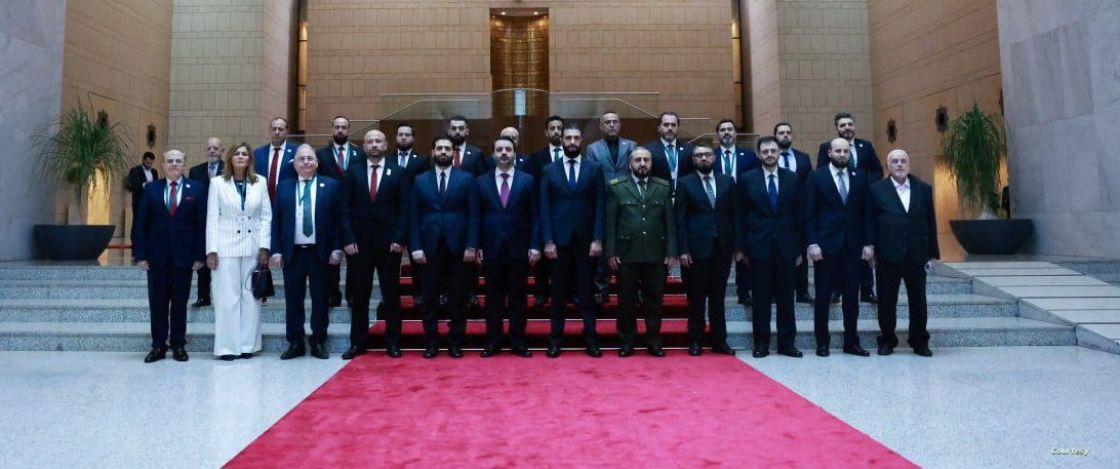- Editorials
- Posted
Kassioun Editorial 1220: How Do We Rate the Government?
The new government was announced yesterday, Saturday, March 29, during a ceremony held at the People’s Palace in Damascus. The 23-member government is headed by Mr. Ahmad al-Sharaa, President of the Republic during the transitional phase, in accordance with the Constitutional Declaration.
Considering the new formation and how it was done, the following observations can be made:
First: Evaluating any government does not start from the biographies of those who occupy its positions, but rather precisely by evaluating its government statement. The speeches delivered by the appointed ministers, each in their respective fields, may cover part of the task required by the government statement, but do not cover it completely and cannot replace it under any circumstances. A detailed government statement, including numbers, is a record of pledges based on which the government can later be evaluated and held accountable. Its absence means the absence of a clear plan of action and the absence of the possibility of subsequent oversight and accountability.
Second: The new government formation attempted to give the impression of broad representation. However, numerous indicators point in the opposite direction. While efforts to achieve broad representation are essential, broad representation should not be merely superficial and selective, in a manner that indicates the mentality of the leader party, which monopolizes the most important seats and distributes secondary seats for the purpose of demonstrating, rather than actual, participation at the political and social levels.
Third: In any case, the final judgment on the new formation depends neither on how it looks – albeit important – nor on what it says, but on the concrete actions and achievements that all Syrians sincerely hope to be real, tangible achievements that meet their aspirations.
Among the most fundamental tasks that objective reality places on the new formation are the following:
First: Tangible improvement in people’s living standards. The overwhelming majority of the Syrian people live below the poverty line, and promises made to date regarding a four-fold increase in wages, a meaningful improvement in the energy situation, and other promises have yet to be fulfilled. The situation remains catastrophic and is worsening with time without radical, tangible measures.
Second: Restoring the single national market as the inevitable starting point for relaunching the economy. This is more of a political matter than an economic one, and requires the highest degree of consensus among Syrians on the one hand, and refraining from succumbing to the blackmail of those imposing sanctions on the other. It also requires seeking alternatives within the framework of international relations in a manner that serves the interests of Syria and Syrians.
Third: Civil peace, preserving it, and reinforcing it, which cannot be tangibly achieved without the highest possible national consensus. This means that the task of convening a General National Conference for Syrians, organized with different methods and approaches from the “National Dialogue Conference”, the interim and current governments, and the Constitutional Declaration Committee, remains an urgent requirement, and a fundamental task for the Syrian authorities and society, leading to a comprehensive, balanced, and broadly representative national unity government that will lead the country to safety through a permanent constitution and fair and transparent elections that will be a tool for the Syrian people to enforce their right to self-determination.


